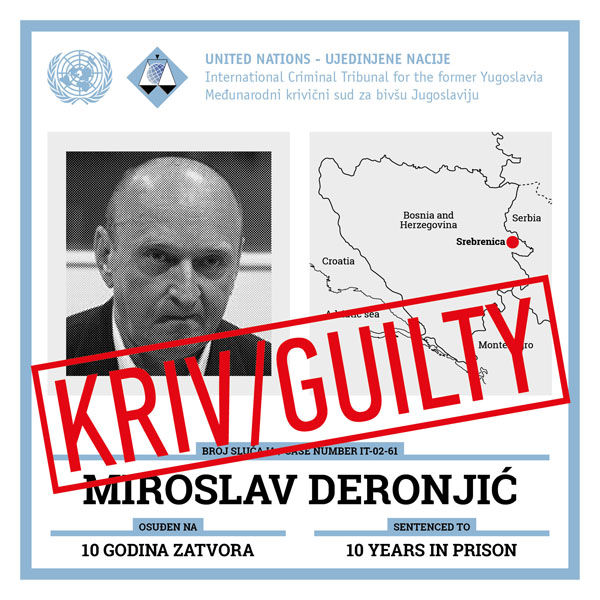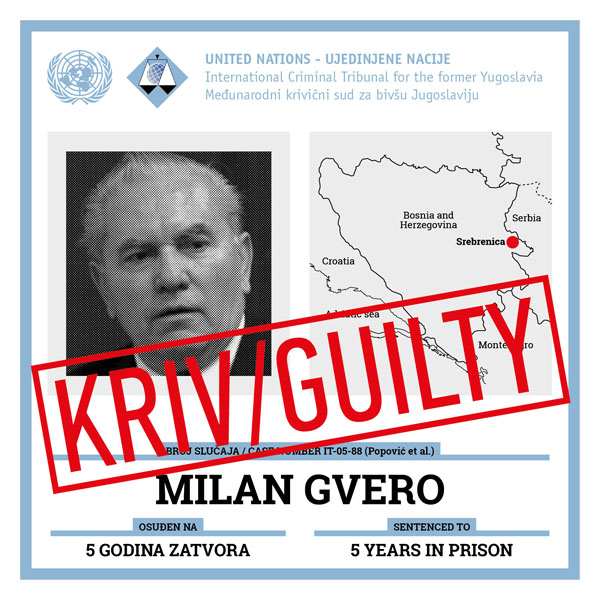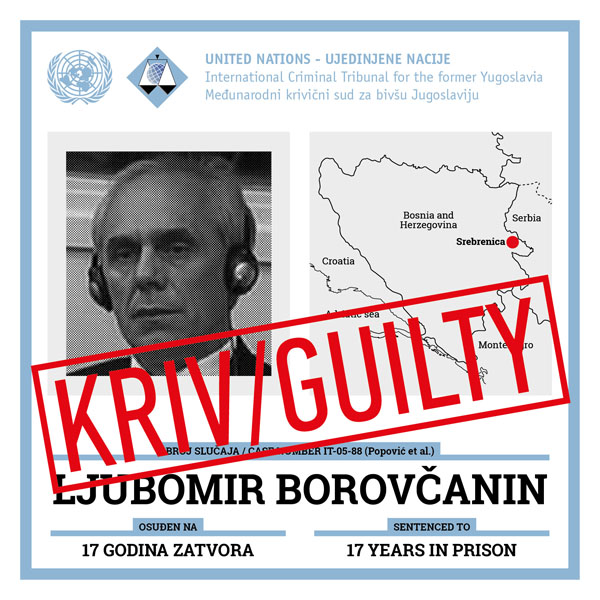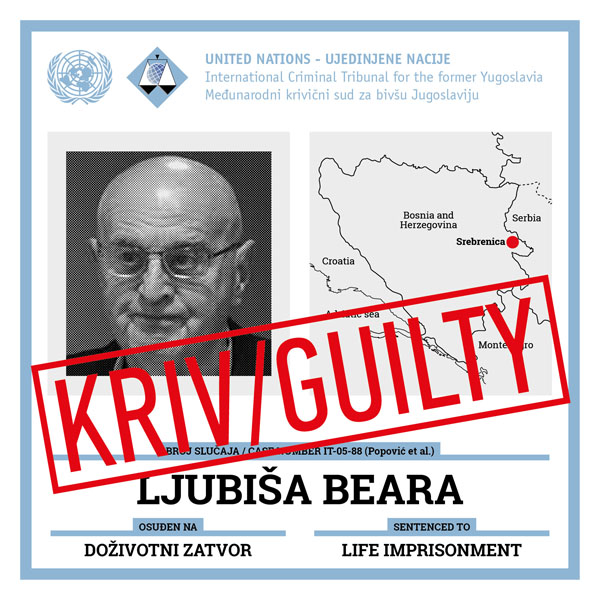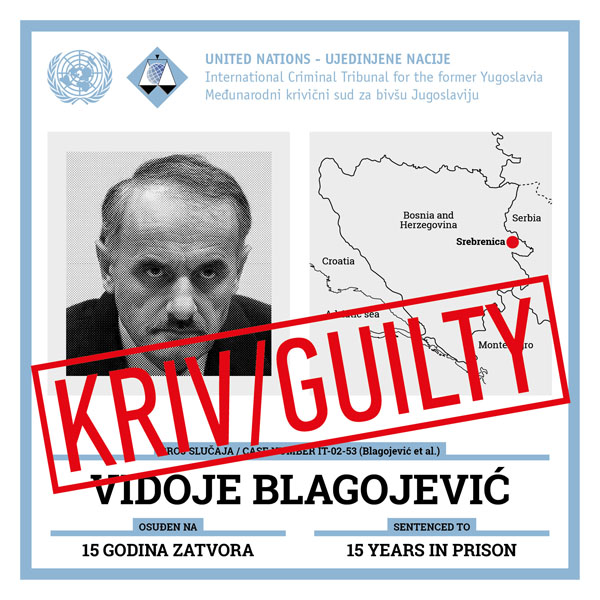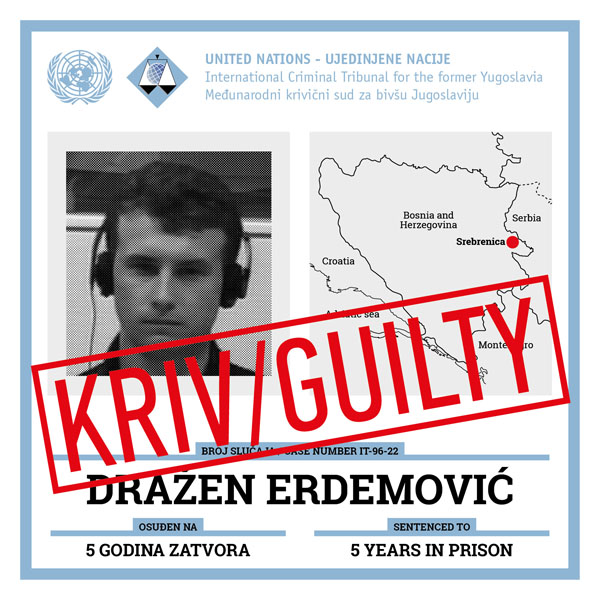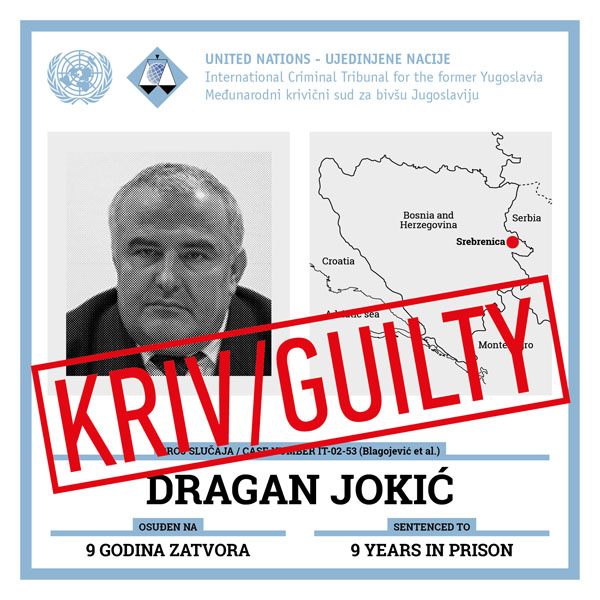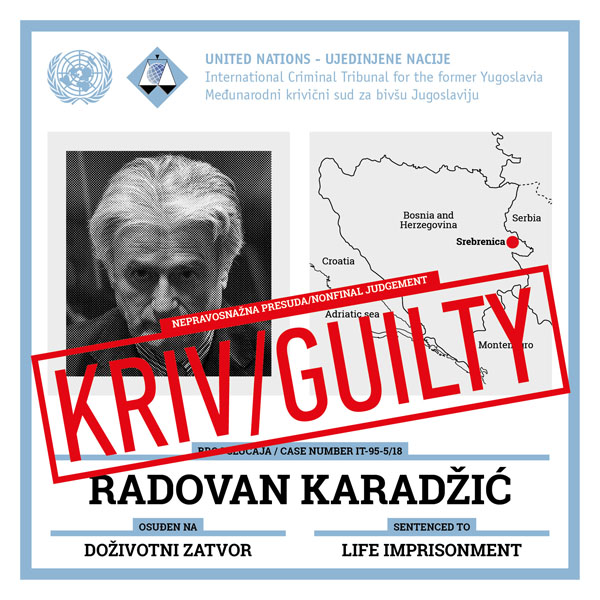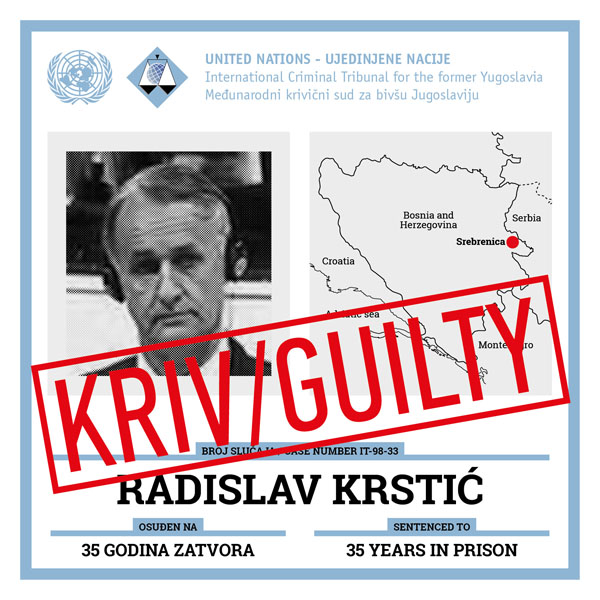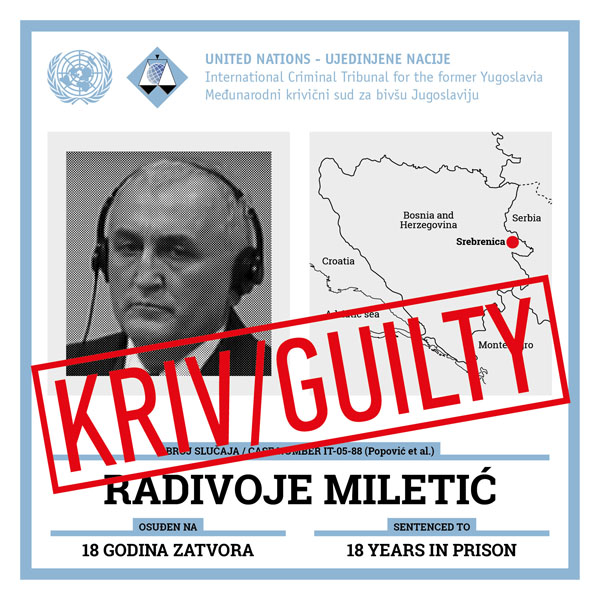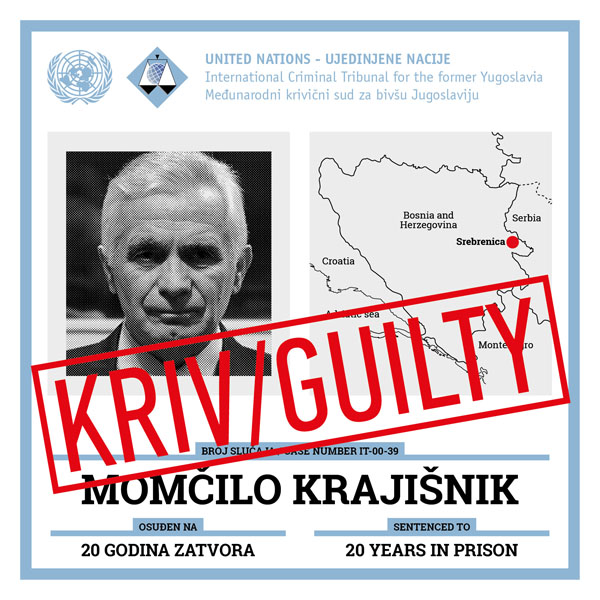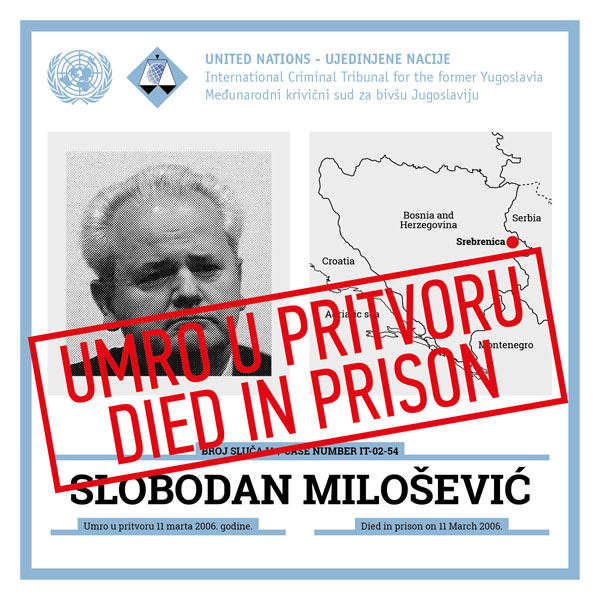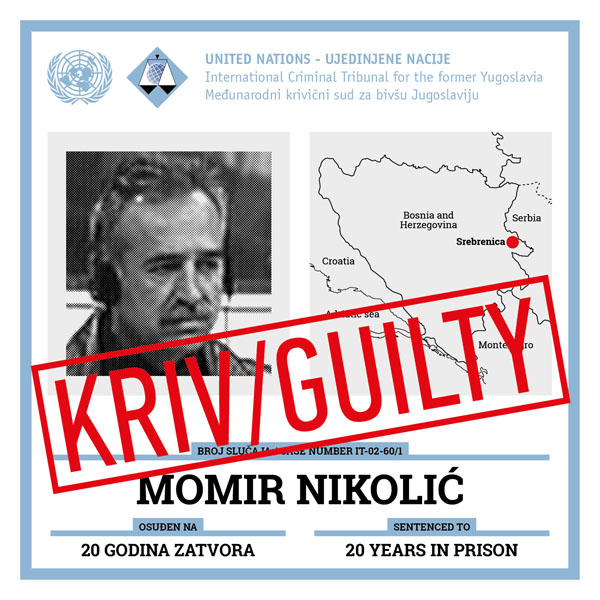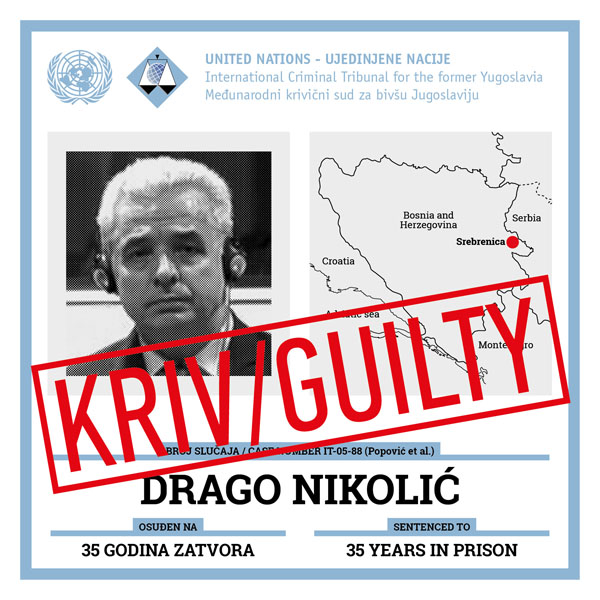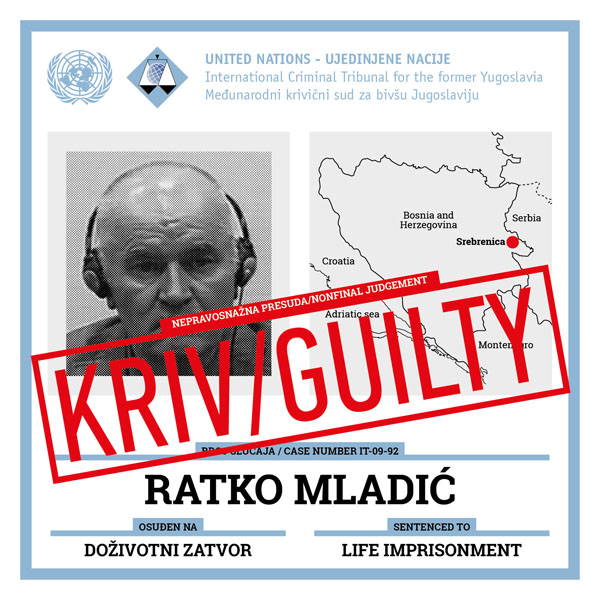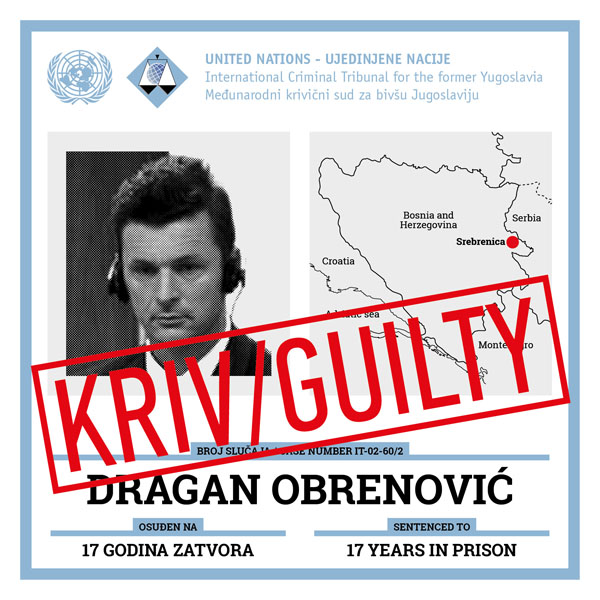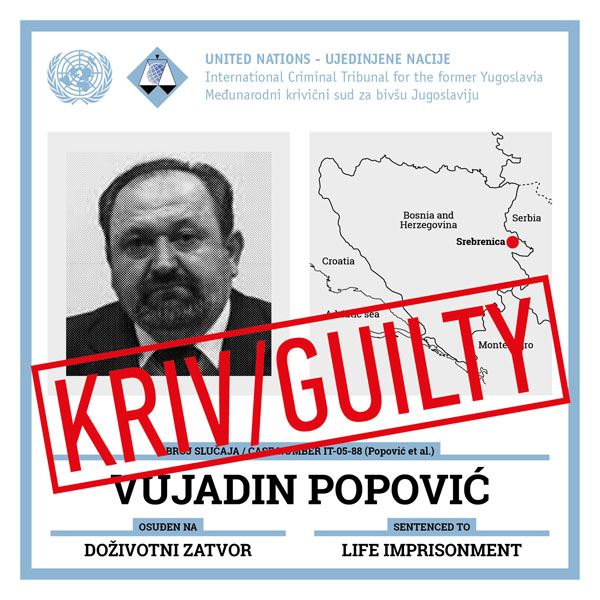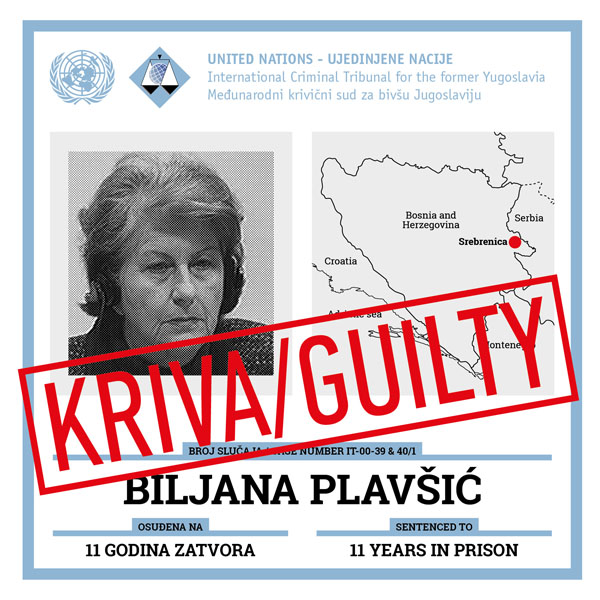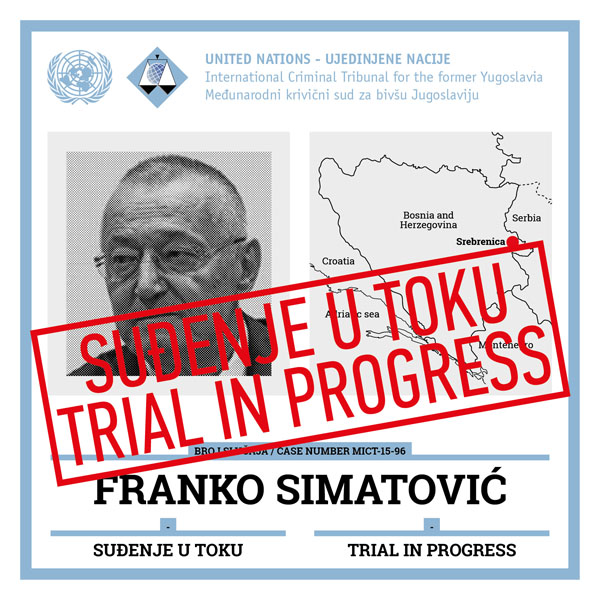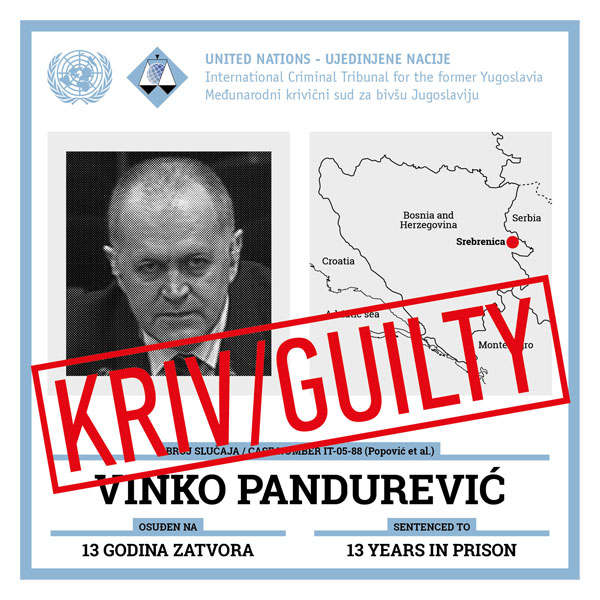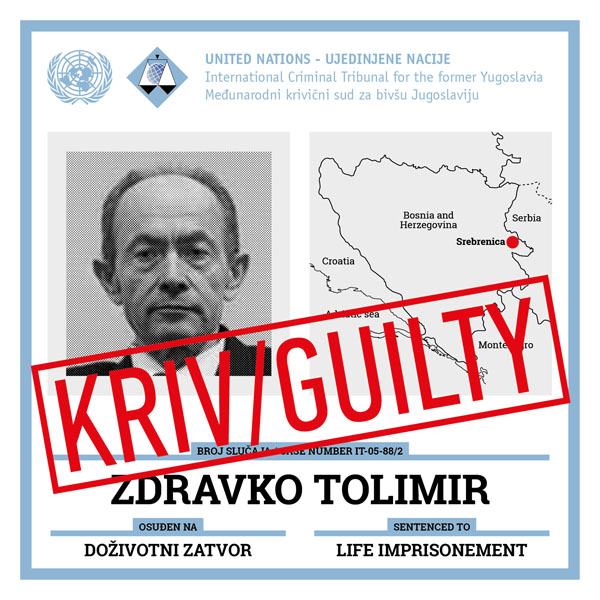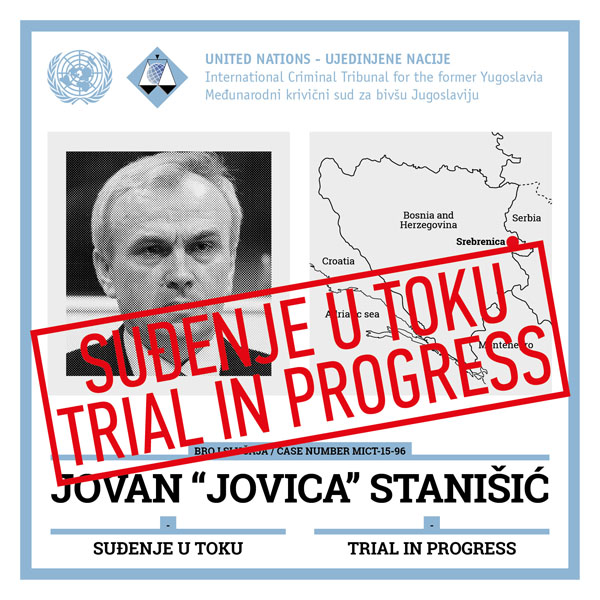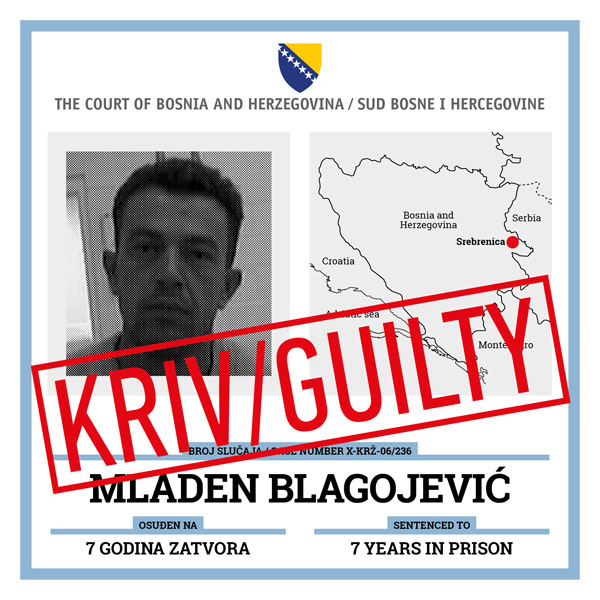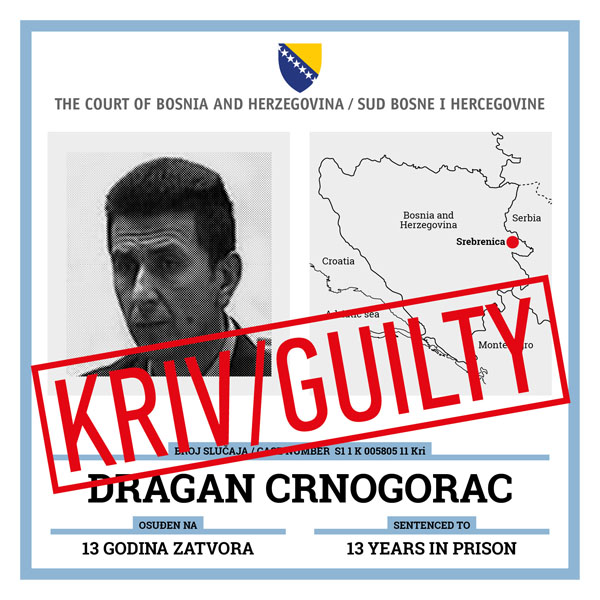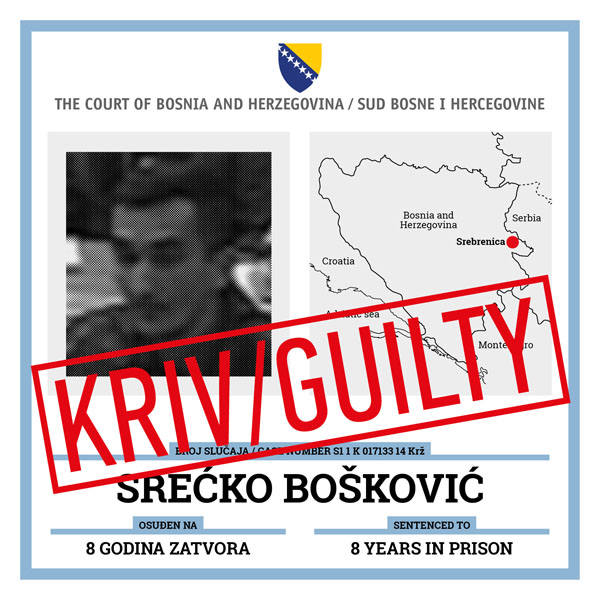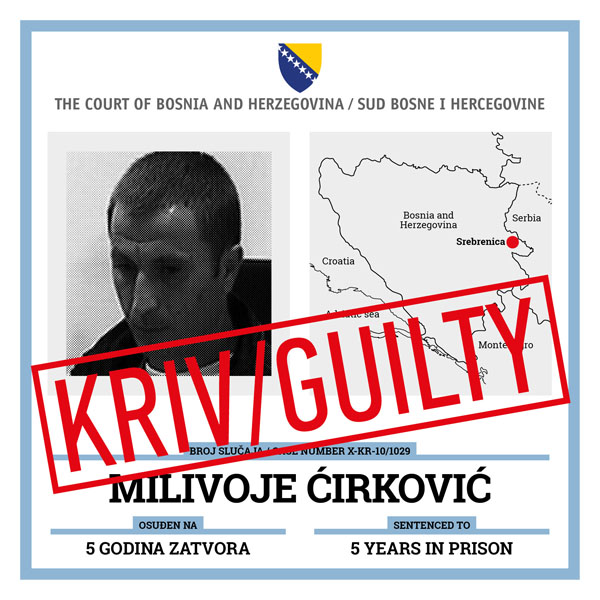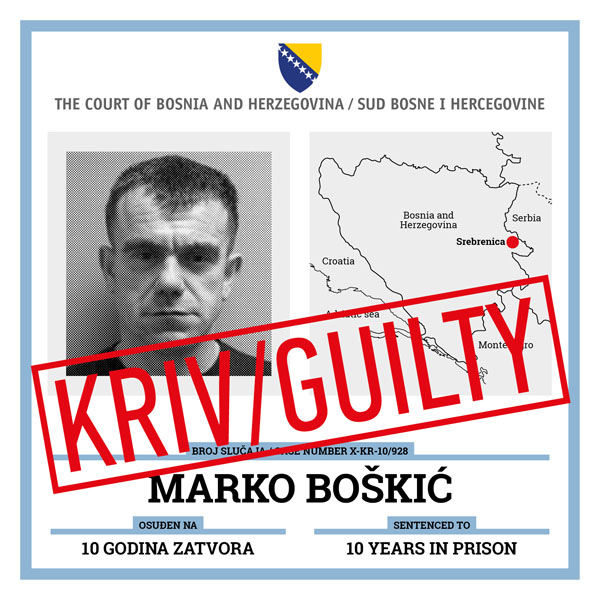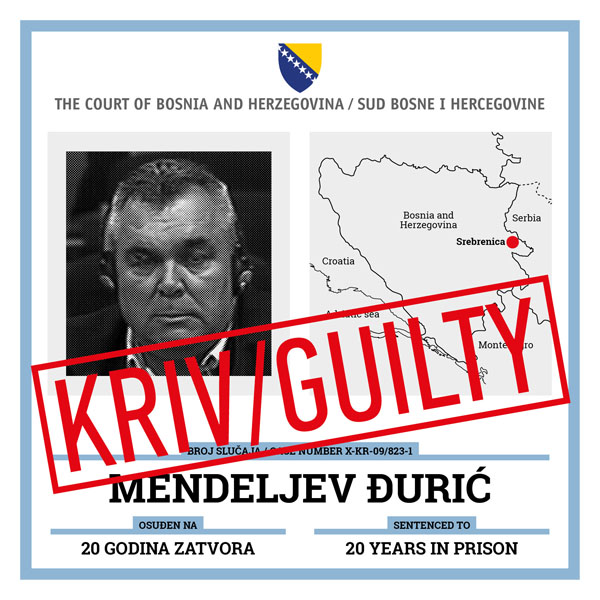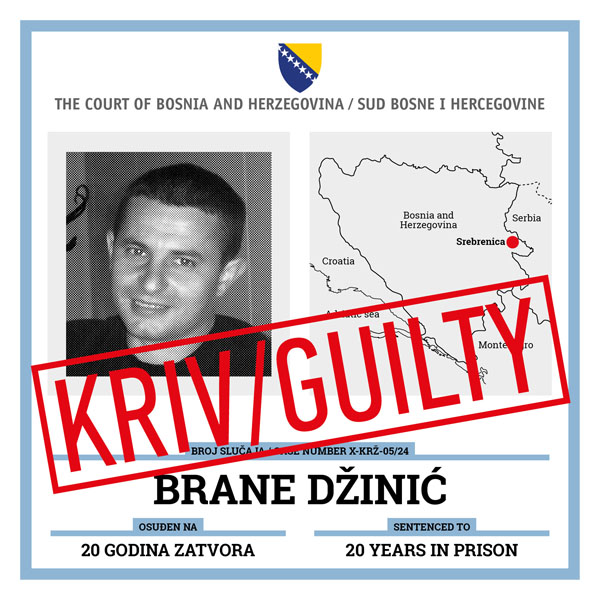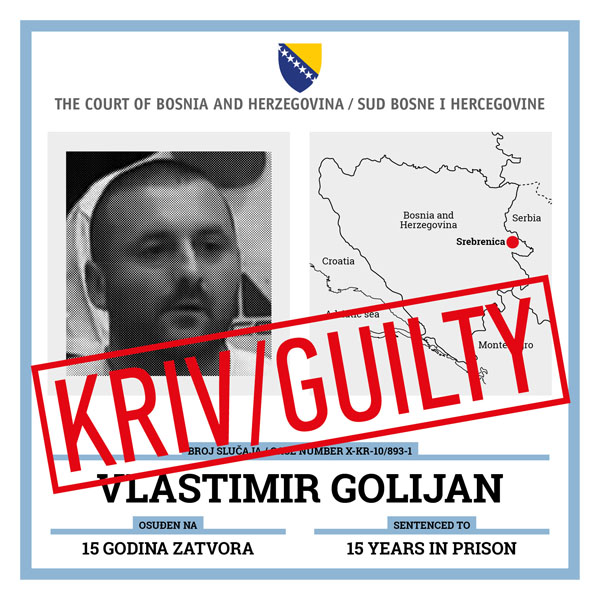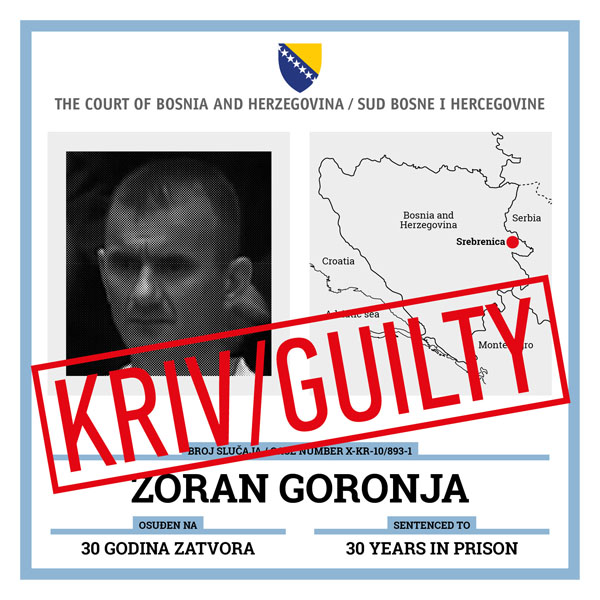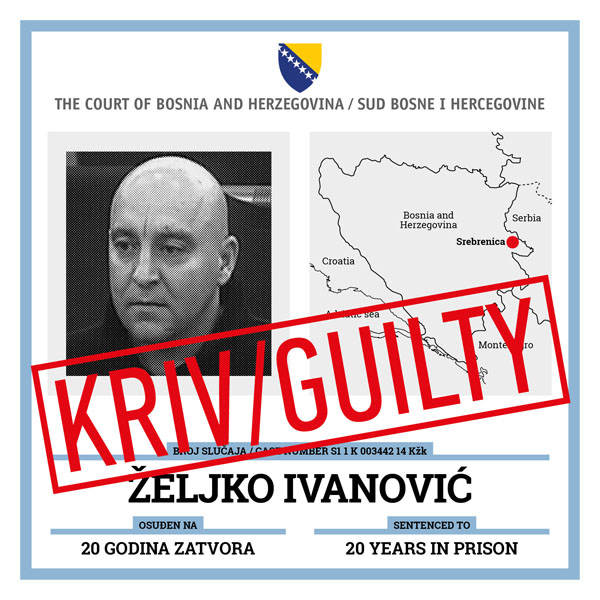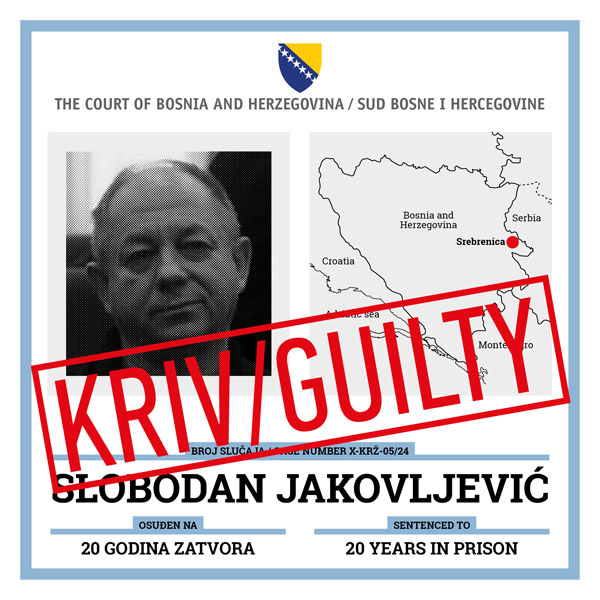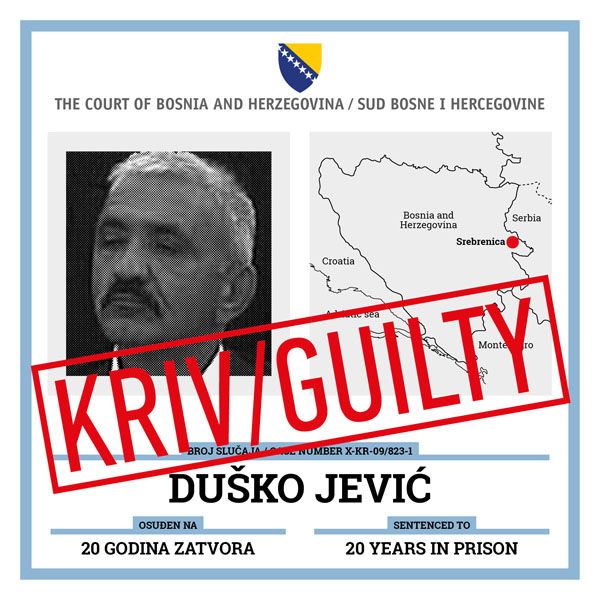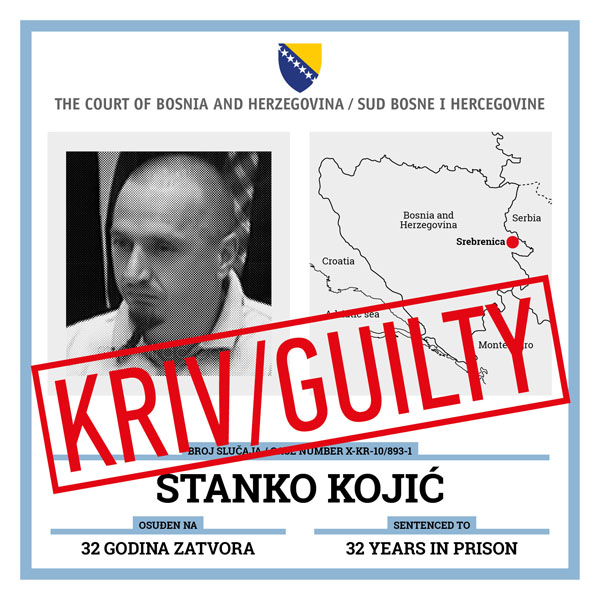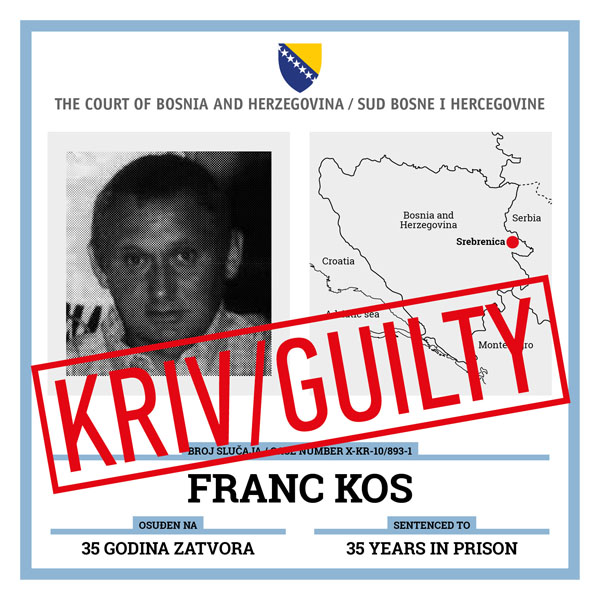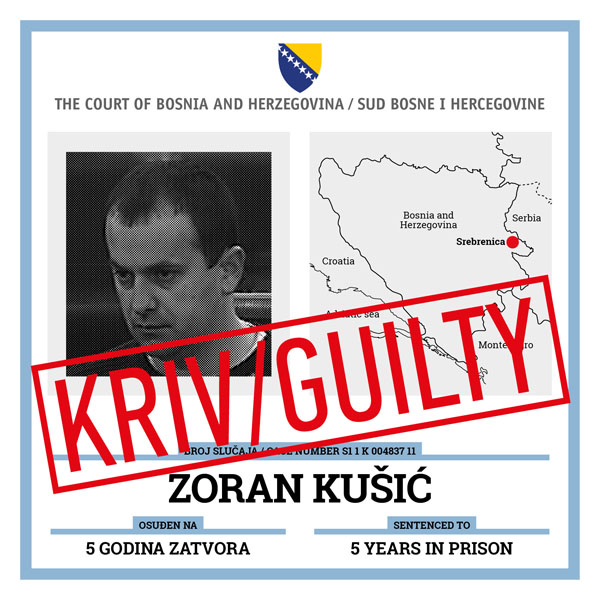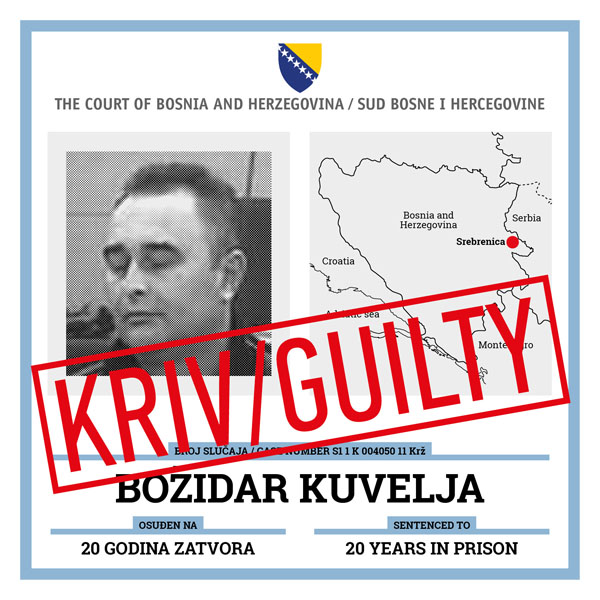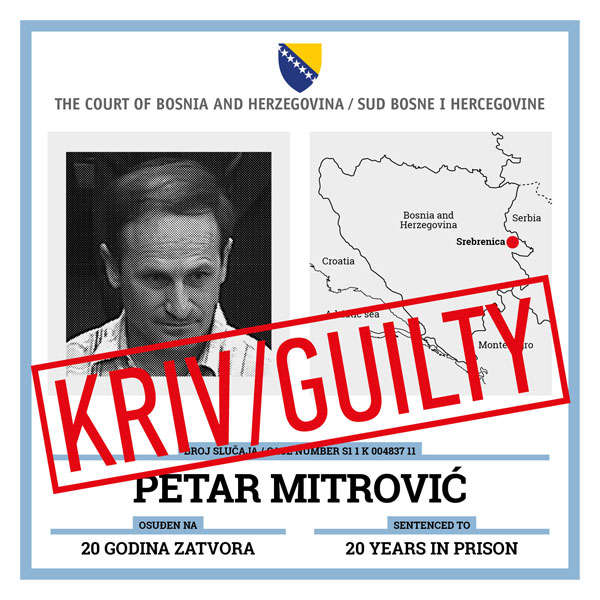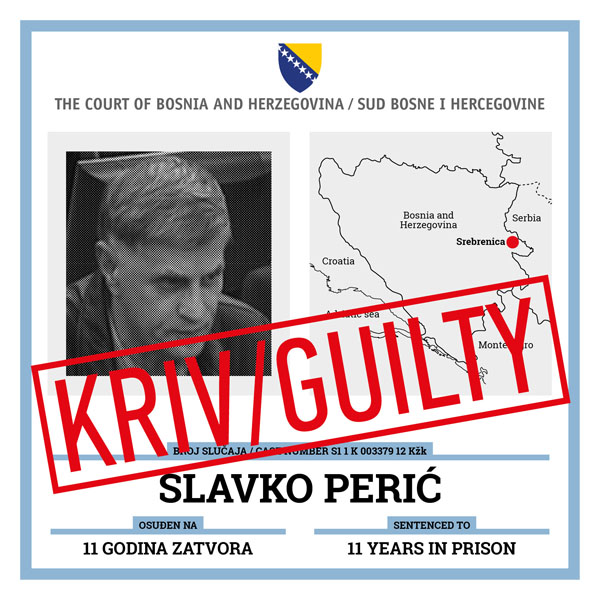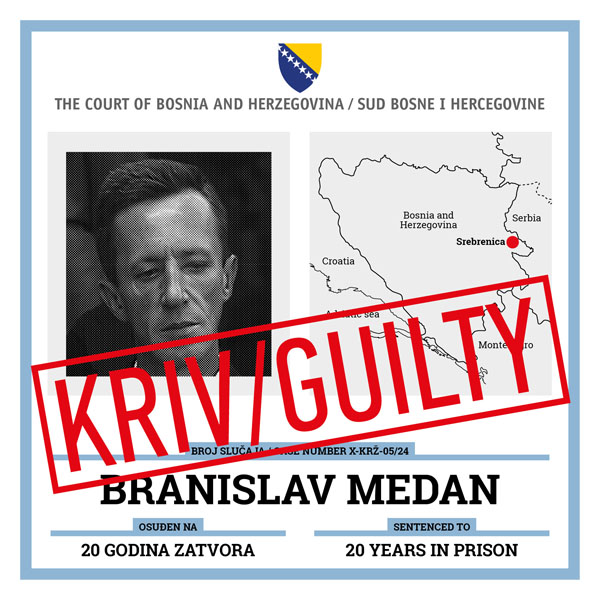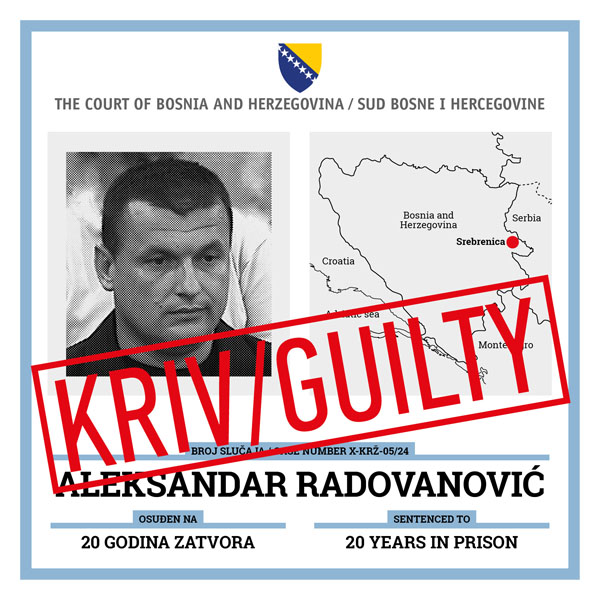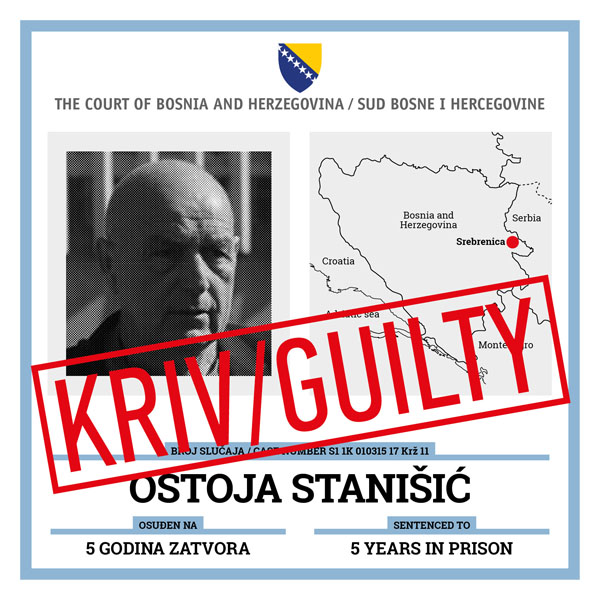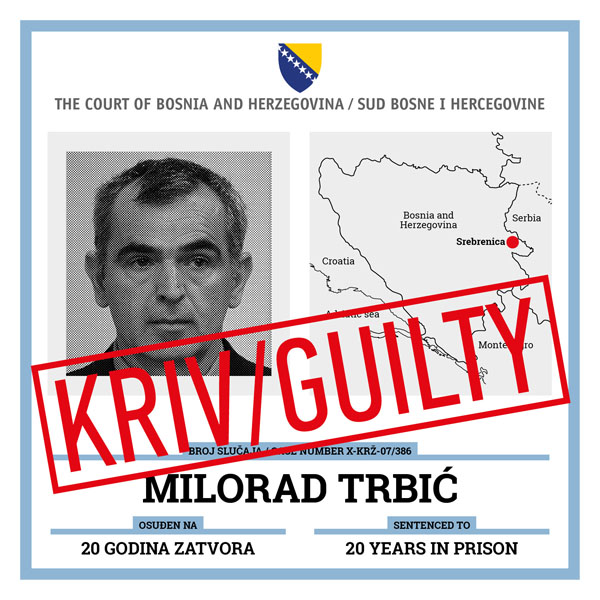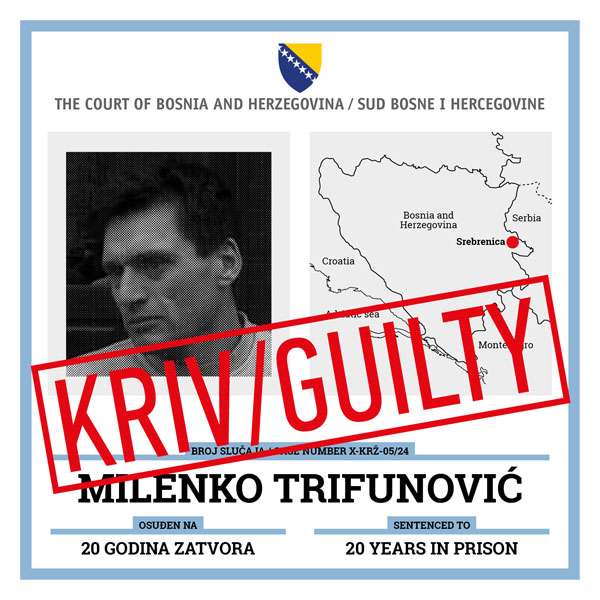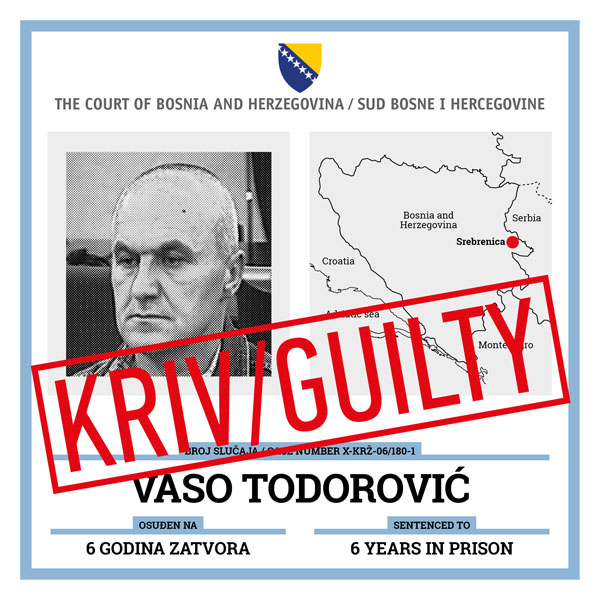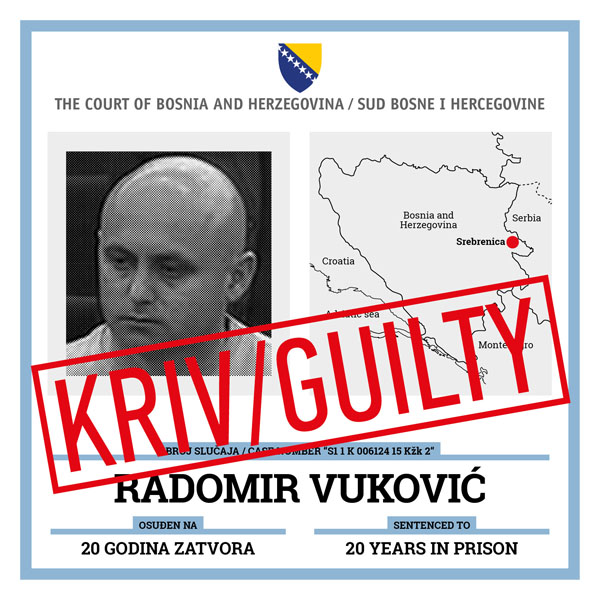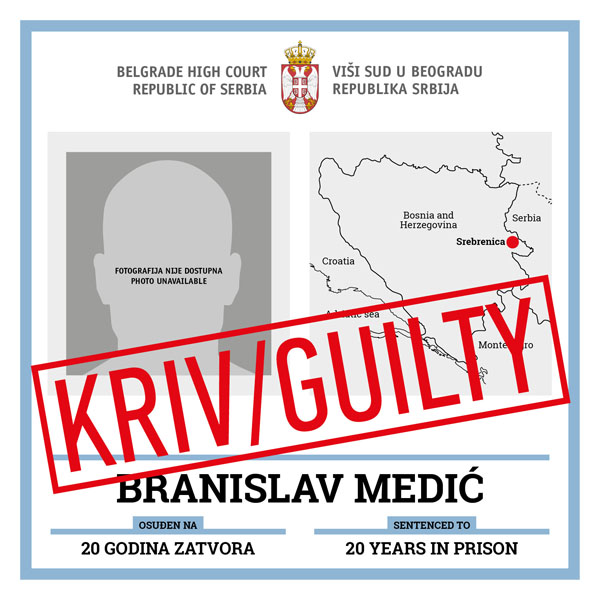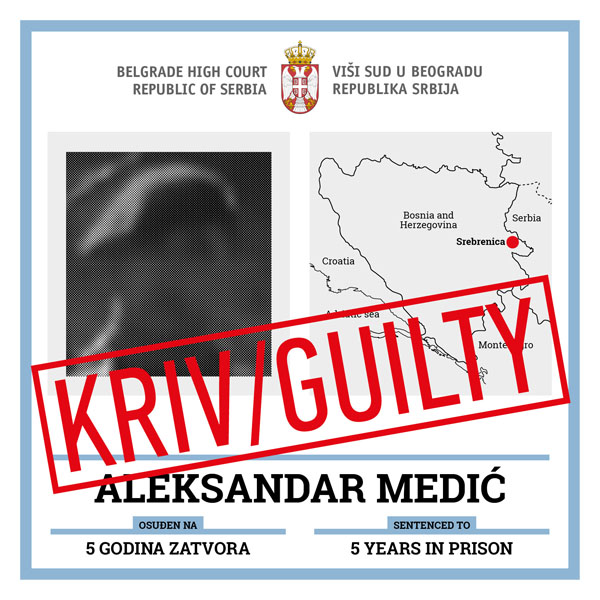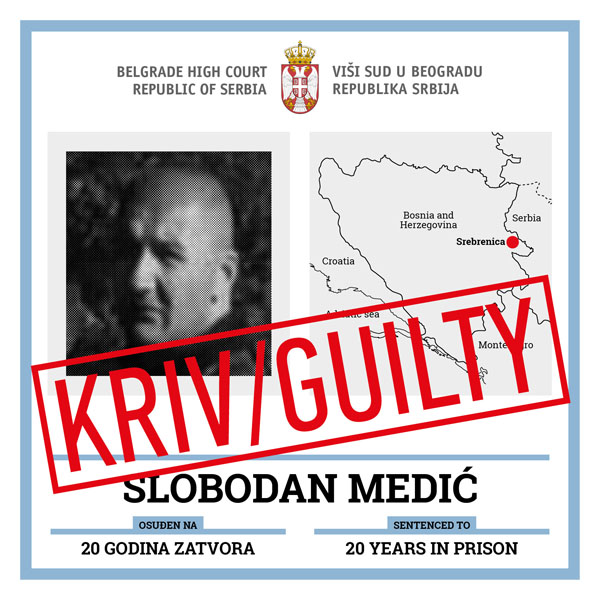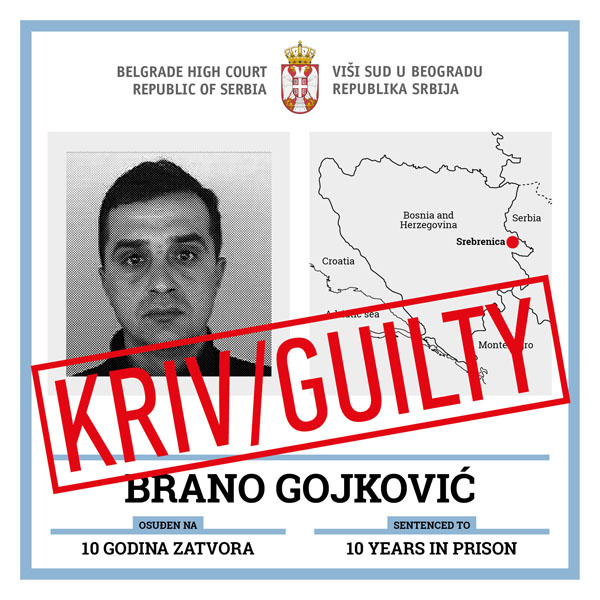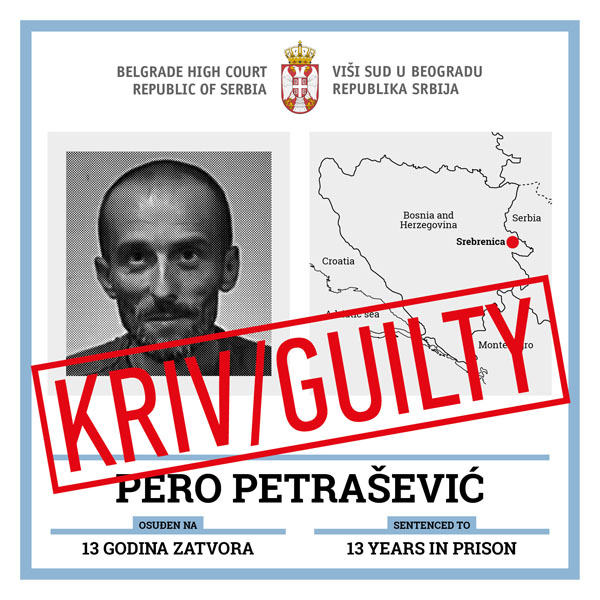
The International Criminal Tribunal for the former Yugoslavia was established by the United Nations Security Council in 1993 to prosecute the mass killings and serious violations of international law that were committed during the wars in former Yugoslavia. While this body was formally dissolved in December 2017, the functions of the court continue to be carried out in domestic courts as well as in the International Residual Mechanism for Criminal Tribunals.
More than 50 people have recieved prison sentences for their involvement in the Srebrenica genocide, totaling more than 700 years in addition to five life-time sentences. Of the twenty verdicts handed down by the ICTY and it's Residual Mechanism (IRMCT) related to Srebrenica, seven have included the crime of genocide. The Court of Bosnia and Herzegovina has likewise handed down thirteen genocide convictions, along with an additional twelve verdicts for other crimes committed in Srebrenica. While the Serbian state fails to acknowledge that the crimes committed in July of 1995 constituted genocide, Serbian courts have also issued five verdicts in the case of Srebrenica including for war crimes against civilians, and serious violations of laws and customs of war.
Radovan Karadzic, the wartime president of the Republika Srpska, was initially sentenced to 40 years imprisonment by the Hague Tribunal for his leading role in the Srebrenica genocide as well as other warcrimes committed throughout Bosnia. UN judges extended this sentence to life imprisonment in 2019.
The military commander of the VRS, former General Ratko Mladic, is also among those serving life sentences for the Srebrenica genocide. In 2017, the IRMCT found Mladic guilty of numerous war crimes in BiH including genocide in Srebrenica, and sentenced him to life in prison. This sentence was upheld in the final verdict of the Appeals Court in June of 2021.
Other war criminals currently serving lifetime prison sentences for crimes committed in Srebrenica include Vujadin Popovic (former Drina Corps assistant commander of security), Zdravko Tolimir, and Ljubisa Beara (former security chiefs of the VRS main staff).
The monitoring and analysis of criminal proceedings related to the Srebrenica genocide is an important part of the Srebrenica Memorial Center's work. Ongoing projects, including "Srebrenica Genocide through Criminal Verdicts" in partnership with the Post-Conflict Research Center, emphasize the importance of transitional justice in securing lasting peace in post-war society.
